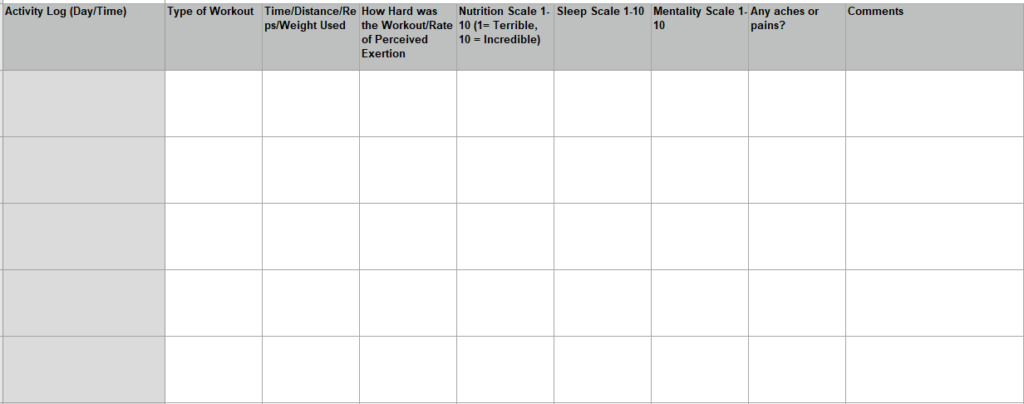Work it Out and Write it Down: Journaling for Performance
by Caroline Daniel
Have you ever developed an ache and been unsure of when it started? Felt fatigued for an extended period of time and been unsure why? Tried to remember what your workout was last Wednesday but been unable to recall a single exercise?
Post-workout journaling might be just the solution you’ve been looking for.
All it takes is a simple notebook and pencil and you can much more effectively track your workout progress—the setbacks and the comebacks, the highs and the lows. Keeping a training journal and writing in it promptly after finishing your workout not only helps you remember in the future, but also helps you reflect on the day’s workout before you forget how you really felt.
An important principle of post-workout journaling is honesty. Because, unless you choose to publicize it, your post-workout journal is basically your personal workout diary. No one is going to read it and judge you for how weak you felt doing the day’s push-ups or how slow the third mile of your run was—it is for your eyes only. Being honest in your journal can help you see when you might need to back off of training to prevent injury or ramp up training when you’ve hit a plateau/period of boredom.
If you’ve never journaled before, here are some ideas of concepts to include in your post-workout reflection:
- How hard was the workout? (Scale of 1-10)
- What exercises were your favorite/least favorite?
- If you ran or did some other type of cardio, how long did you go? How many miles did you cover? What was your average heart rate?
- How did you feel? (Via words or via a “rate of perceived exertion” scale https://my.clevelandclinic.org/health/articles/17450-rated-perceived-exertion-rpe-scale
- How much sleep did you get the night before?
- How was your nutrition throughout the day?
- What was your mentality like?
- Did you have any specific aches or pains?
While journaling may seem like an unnecessary and cumbersome task at first, making it into a habit can greatly increase your self-awareness. Learning to listen to your body’s cues is one of the most valuable lessons consistent exercise can teach you—but if you don’t track your body’s cues, you cannot learn from your mistakes when/if you end up injured or overly fatigued.
Journaling does not have to be an hour of essay-writing—you’re not going back to your high school days (or if you’re in high school, you’re not adding more homework to your plate). Simply allow yourself 5-10 minutes post-workout to scratch down some key ideas. Not only will it help you prevent future mistakes, it will help you continue to cool down and process the intense work your body just completed. My personal favorite part of journaling is being able to look back months later and see how much progress I’ve made.
So head to your local Office Depot and grab a notebook! Your body and mind will thank you.
Example Journal Format

Caroline Daniel is a Student-Athlete running Cross Country and Track at Belmont University while Majoring in Exercise Physiology. She is currently completing her internship at Personal Best Fitness
